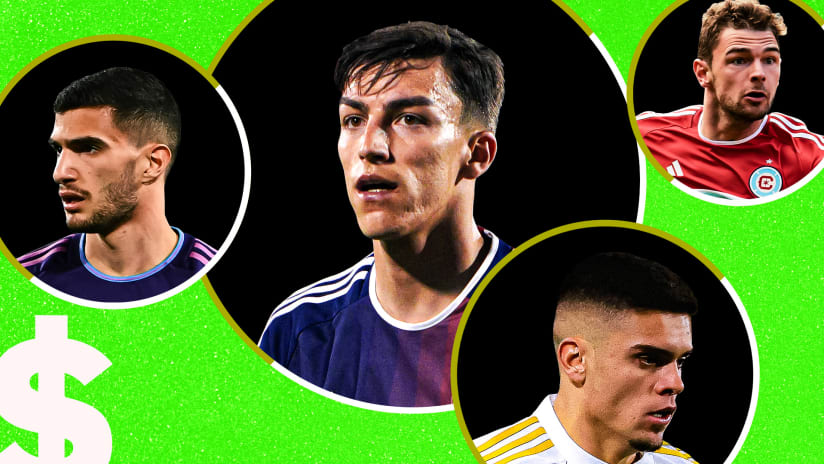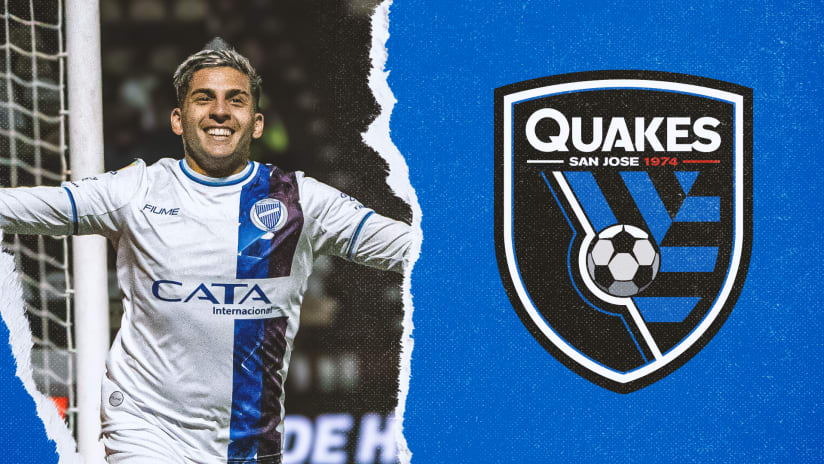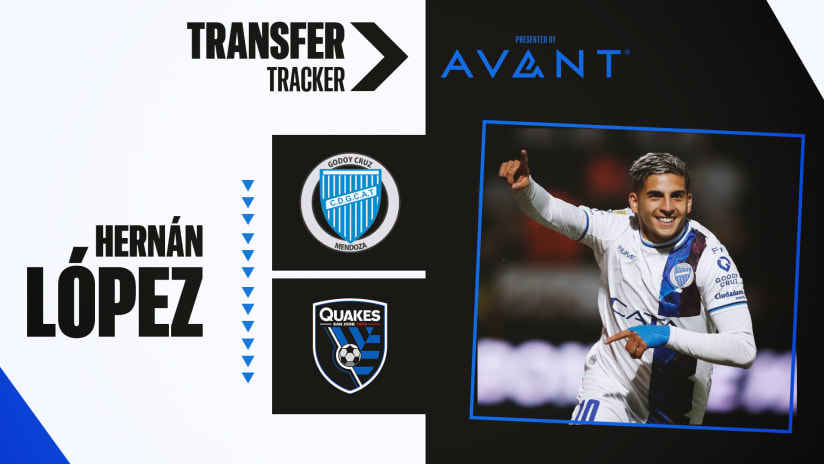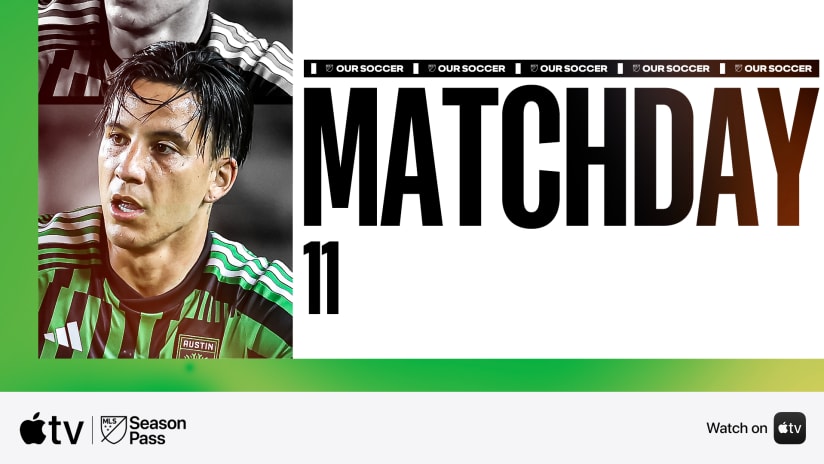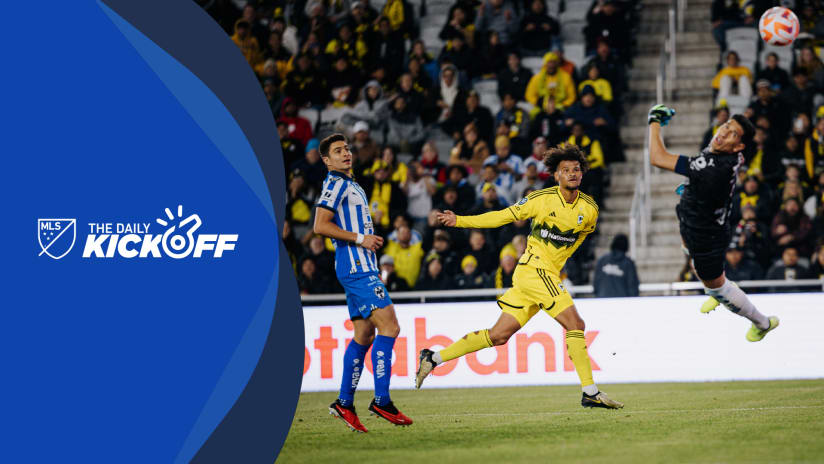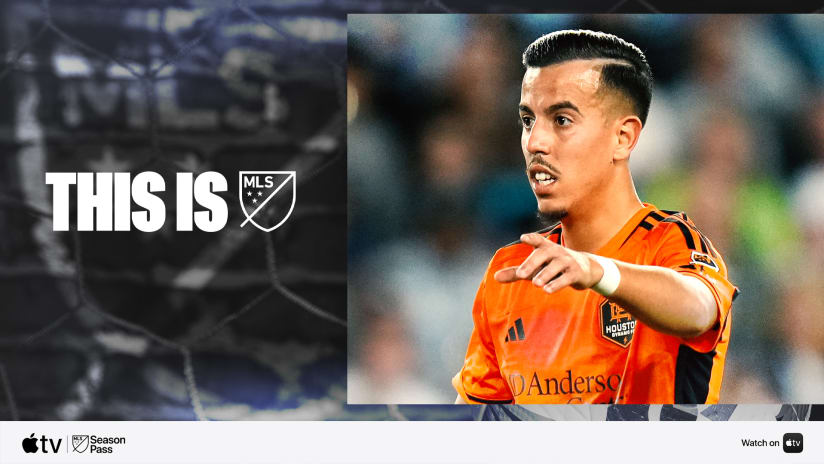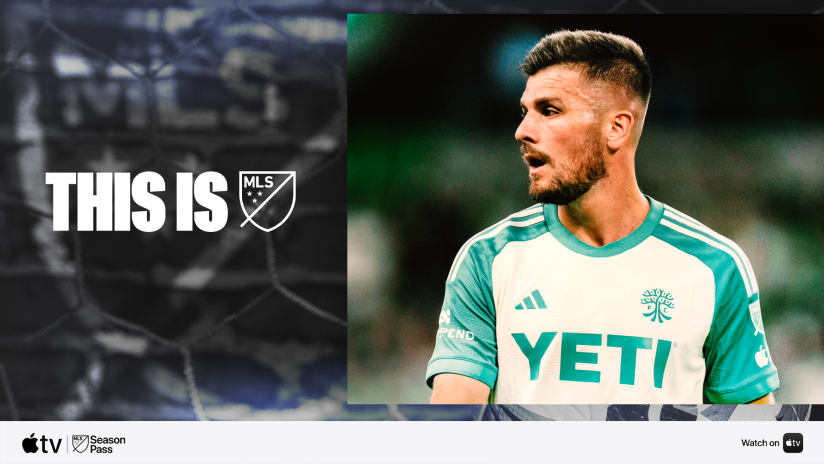It might seem hard to believe, but Fire defender Jim Curtin will be the fourth most-tenured player on the Chicago Fire roster when the squad kicks off its tenth season on April 7th. The elder Curtin on the squad (the Fire drafted his younger brother, Jeff, in the 2006 MLS SuperDraft) is currently preparing for his seventh season with the "Men in Red," and since coming to the Windy City in 2000 the Philadelphia native has laid plenty of roots in the Chicago soccer community aside from manning the middle of the defense for the Fire. Curtin joined the Chicago Fire Coaches Club to talk about the coaches who have influenced his soccer career and how he approaches coaching when he plies the trade for his players at the Chicago Kickers Soccer Club.
CFCC: What coaches had the biggest impact on your game both on and off the field?
JC: I would have to go back to my coach at college, Larry Sullivan. He was my first coach that I had that really kind of inspired me to go to the next level. He was really good. And then obviously my first coach here with the Chicago Fire Bob Bradley, who is now the U.S. National Team coach. I learned a lot from him, and Dave Sarachan, too.
I've been lucky. All those guys have had high positions with the National Team, so I've been lucky to kind of stay with one team throughout my career. The things that I've been able to learn from some of the best coaches in this country have been very beneficial to me for sure as a player. I'm spoiled.
CFCC: What are you able to take from your playing experiences at the highest level of soccer and apply as a coach to kids?
JC: That's a good question. The best advice, especially for children, is I'm playing my best when I'm just having fun. I know that sounds so simple and easy, but when I'm having fun on the field, that's when I seem to be playing at my best. When I go out there and I'm nervous before games I can kind of tell that things aren't going to go as well. That's just the best advice I can give for little kids.
Getting the chance to play against the best players that this country has to offer-the Landon Donovans, and those kind of players-I can answer a lot of questions to kids like what it's like to defend them and little tips here and there that you learn from playing against some of the top players in the country. I have been fortunate enough to play against a lot of the good players that this league has to offer, and [the kids] will always be asking me little tips - "What can I do to stop a guy?" or "What can I do offensively to help out?" The kids ask a lot of questions about individual players, and I just try to pass on as much knowledge as I've learned through the years to them.
CFCC: When working with youth teams, is there one aspect of the game you like to focus on the most?
JC: I'm a defender so I try to teach to all of them that it's not just the defenders that are responsible for playing defense [laughs]. It kind of starts with the forwards and works its way back. I feel like if you have a team where everyone's contributing defensively and doing their job defensively, things kind of take care of themselves. You'll wind up having the ball more, which leads to offensive chances.
I think if you have a good team defensive mentality, then you're going to be a very successful team. Especially if you focus on not giving up goals - usually goals are going to come out of that. So I try and really focus on relaying the team concept of defense, and that it's not just the defense who is responsible for defending. It's a kind of defensive focus more than offensive.
CFCC: In what ways have your coaches - past and present - suggested to you that there need to be changes in your play or in the play of your teammates?
JC: During the course of the season, you'll do little things after practice or take constructive criticism that they give you. Especially at the professional level, and this also transcends to the kids as well, when your coaches are critical of you, it's because they want you to get better. As long as you don't take things personally, it seems to be much more beneficial if you don't just have that negative attitude.
Whether they want you to play in a different position or try something that you're not used to doing, you just have to take it all with a positive attitude and be able to take constructive criticism because, at the end of the day, they're just trying to help you out. And maybe sometimes they're right and sometimes they're not, but you still have to listen and kind of learn from that.
CFCC: In what ways have your coaches (past and present) stressed the importance of team-whether on or off the field?
JC: It sounds like such a cliché thing when you say "We have to play like a team," but it could not be more true. If one guy on your team is on his own agenda, things don't tend to go too well. Everybody has to be focused on the goal of the team and the game plan that's supplied by the coaches.
The teams that I've been on in this league that have been successful have had the same mentality where we all will fight for each other and play for each other rather than getting individual accolades and glory. On the teams that won and did well in the playoffs, we all had the kind of team concept down pretty well. Whereas the couple years when things didn't go so well, it was a lot of guys on their own agenda, and it just doesn't work. It sounds cliché, but it just works that way.
CFCC: What qualities do you believe distinguish an average soccer coach from a quality soccer coach?
JC: I think the best coaches are guys that have played the game in some form just so they can relate to what players go through, and the ups and downs during the course of the season. They know how to get the most from their players.
And the coaches that I've had have always been guys that you could get along with-they're good people-and that goes a long way. They're never too intimidating and able to talk to their players. They're the ones that I've seen have the most success. It's the guys that kind of think they're too good to even talk to people that I think are not good coaches. Just being able to relate to players is key, and that usually comes from having played the game themselves at some level.
CFCC: In your Urban Initiatives program, you work with some children who have little knowledge and/or interest in soccer. What are the initial steps you take to introduce those children to the game, and how do you make it equally engaging for all the children who may have different skill levels?
JC: That's the thing - the kids down there are more into the basketball and football. They're learning soccer; it's new to them, it's a new game. But I learn that they pick things up very quickly, and they've improved drastically over the years that I've been with the club. There are definitely different degrees. There are some kids that have advanced in the program and are really talented kids that already know all the rules, and then there are other kids that we're still breaking it down like, 'You can't use your hands,' ya know? [laughs] The athleticism is there; it's just a matter of breaking it down to really the lowest level of passing and trapping.
We have lot of kids that are learning soccer for the first time and really enjoying it. You can tell that they like it, and that it's something they want to do in the future. I think you're going to see some players come in from that inner city area a lot in Chicago, so it'll be good.


